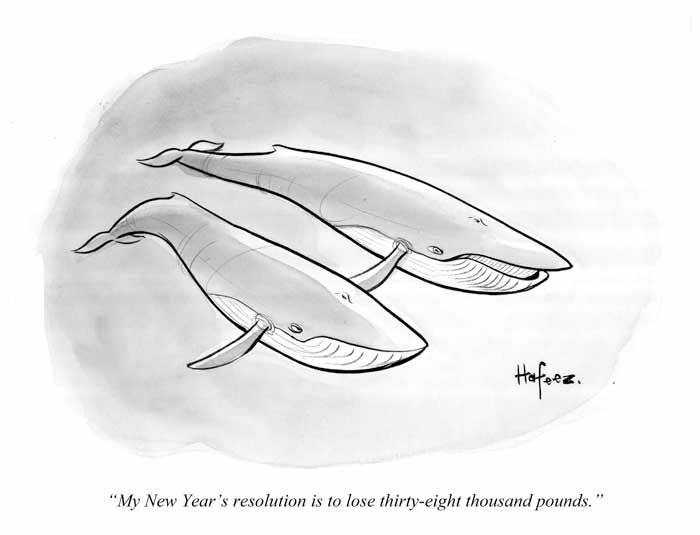
I learned a lot in 2017. I learned about the bicameral mind, justice and mercy, women in the workforce, why politics and religion divide us, and so much more — I even tidied up my room! It was a profoundly rewarding year, and I couldn’t have done it without books.
One year ago, I decided I would read 52 books, or a book per week, for my New Year’s goal in 2017. I knew it would be a big challenge — and a rewarding one, at that. I was aware that the stats were against me: a measly 8% of people accomplish their New Year’s resolutions. Nevertheless, I was confident I could do it, and I did. You should be confident about your goals, too. Here’s how you can set and accomplish them.
Choosing Your Goal
Picking a goal isn’t as tough as it seems. Think about your broader life objectives and interests. Do you want to get a job promotion? Be healthier? Improve your personal brand? Whatever your broader life objective is, ensure your goal fits into it somehow — and don’t do something you aren’t interested in. You only have so much time in the world, so don’t spend it doing things you don’t want to do. By viewing your New Year’s goal as a stepping stone to achieving a long-term goal, and by doing something you’re interested in, you will maintain more intrinsic motivation to succeed.
For instance, if you hate exercising your legs at the gym, your goal probably shouldn’t involve #LegDay three times a week. But, if you’re intrinsically motivated to live a healthier lifestyle, doing a healthy activity — be it running, swimming, or rock-climbing — three times a week becomes easier and more enjoyable.
One of my marketing professors has a saying: “What gets measured is what gets done.” Therefore, the goal should be achievable and measurable. Far too often, we pick goals that are so big that they’re unachievable in a year’s time. If you do this, you only give yourself more opportunities to fail. And if you don’t measure your goal, you are unable to track your progress. You’ll astonish and motivate yourself simply by measuring what you’re doing.

Achieving Your Goal
In the book Presence, author Amy Cuddy has advice for achieving your biggest challenges: focus on the process, not the outcome. This encourages you to keep working and growing even when the task seems daunting. Keeping with the previous health example, imagine how you feel thinking, “wow, I had a great workout, and I feel good” after a run. “I’m making healthy decisions,” you think. Now, imagine thinking, “why don’t I have a six-pack yet? Why am I not yet a marathon runner?” The first reaction is process-oriented and the second is results-oriented. Most likely, the former feels more encouraging than the latter.
The process of choosing books, reading them, and sharing what I learned was a thrilling experience for me. Make the process of completing your New Year’s goal exciting — and focus on that, not the eventual outcome.
Hold yourself accountable. This sounds obvious, but sometimes intrinsic motivation isn’t enough. I held myself accountable by publishing a list each month of what I was reading and why. Then, when I finished the book, I shared my notes on it. My intention was for others to benefit from my goal, and to require myself to read books on a set schedule.
As an accountability mechanism, it worked well. (Although, in July, when engagement on my site suddenly dropped, I got a feeling that social media algorithms weren’t displaying my book posts as prominently, so I stopped sharing my notes.) Because I held myself accountable and enjoyed the process, I was able to complete my 52 books without writing blog posts.
Another way I held myself accountable was by surrounding myself with friends who pushed me to keep going. To all my friends who asked what I was reading, what I recommended, who put up with me talking non-stop about something I learned, and who reviewed my blog posts: thank you. I couldn’t have done it without you.
Being Your Best Self
“New year, new me,” is a saying that, at first glance, appears innocuous and inspirational — a call to action, perhaps — but in reality is pernicious and poisons the way we approach opportunities and challenges. Being your best self has nothing to do with the calendar year, and has everything to do with the everyday choices we make and how we make them.
2017 was an amazing year for me. I set and accomplished a substantial goal, and I learned a ton in the process. I pushed myself to be a little bit better, inching closer to becoming my best self. As you define your goal and set out to accomplish it, evaluate how you’re bettering yourself and those around you.
As 2017 concludes and we turn the first pages of 2018, we must consider our options: action, or inaction? Being bold, or being small? Learning from failure, or failing to learn? We have the ability to plan for our futures and make the decisions that shape them. We can — and must — surround ourselves with people and ideas that challenge us to grow and reach our potential. In the new year, I encourage you to boldly face your biggest challenges and get closer to being your best self.
I hope this has been helpful and as always, thanks for reading with me. I wish you a happy new year full of growth.